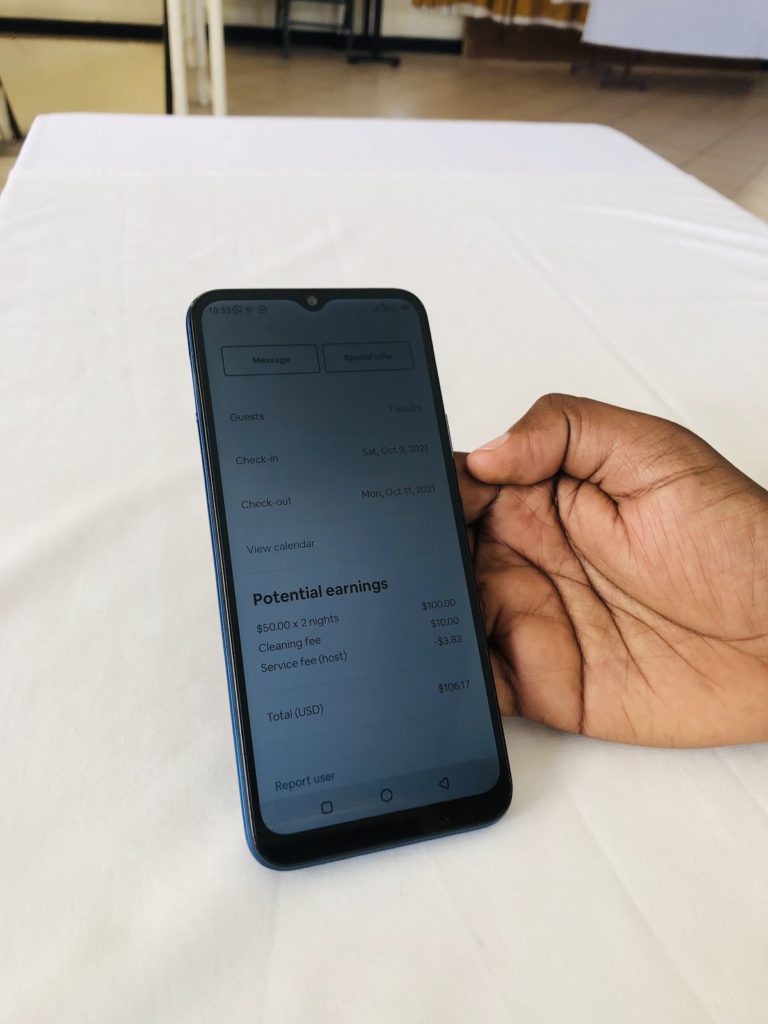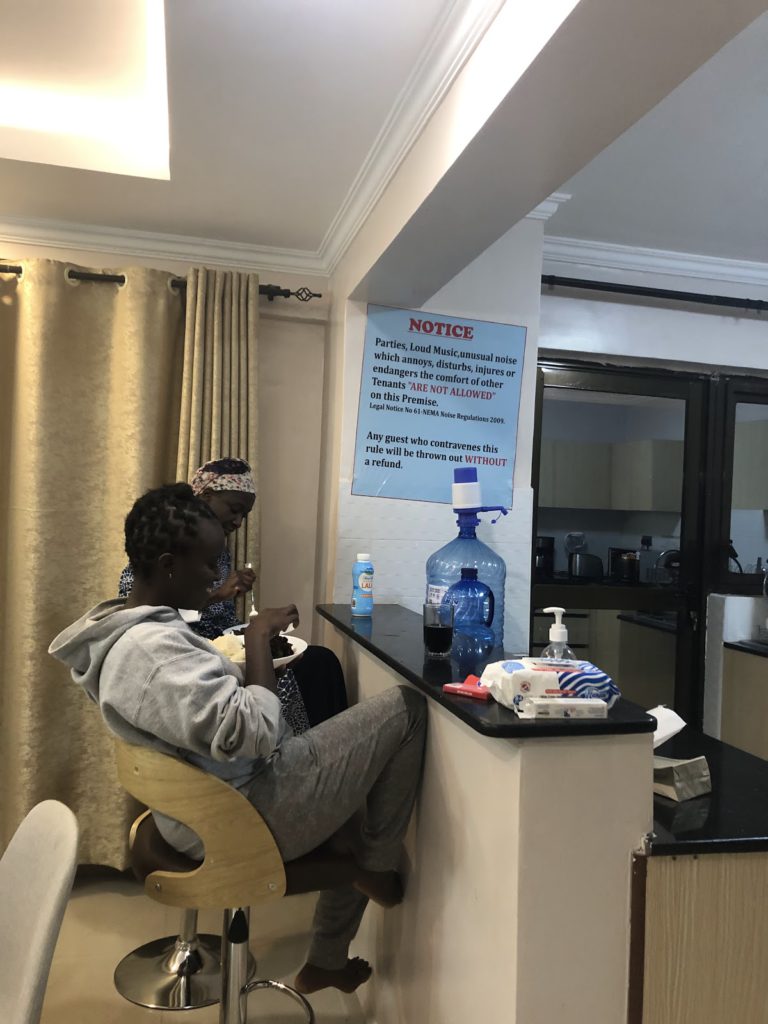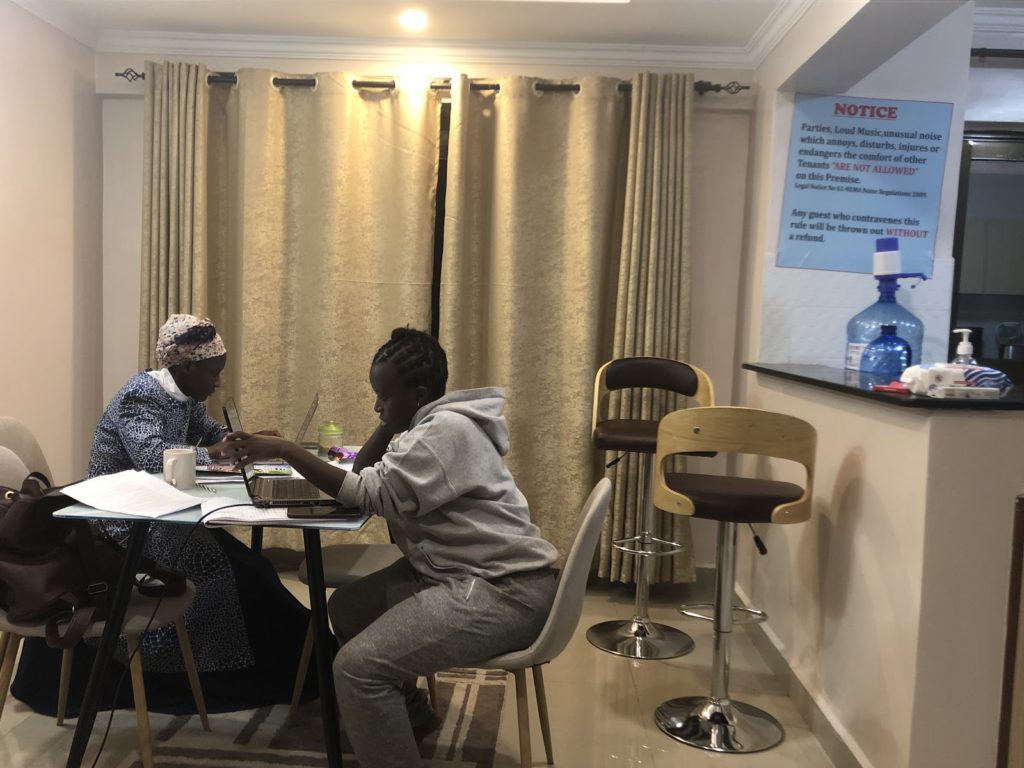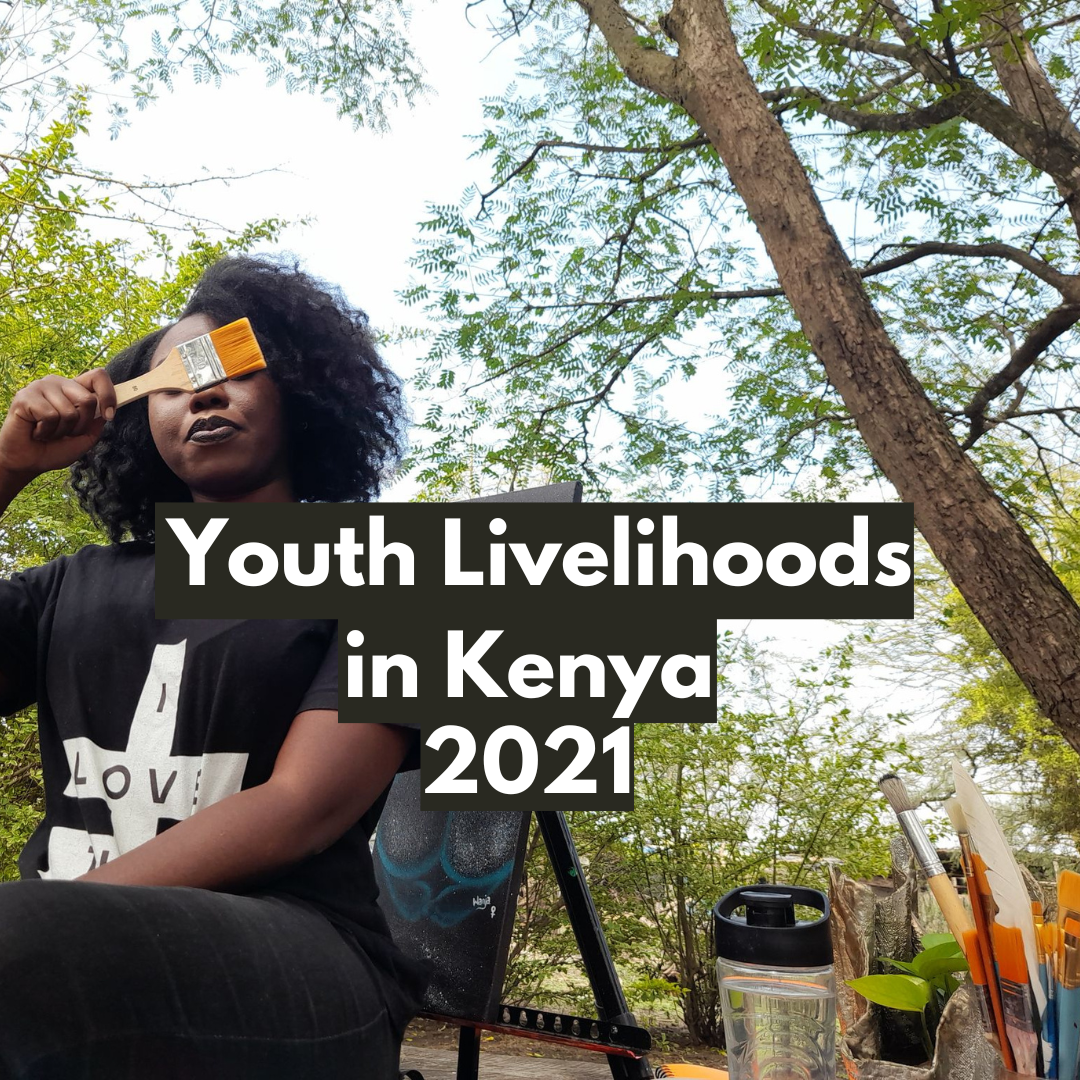Asset renters primarily engage in renting their owned assets or renting from the owner and later sub-renting. To attract clients who then fractionally utilize the asset, one needs to engage in creative marketing on social media and other digital platforms because listing alone does not always guarantee clients. These practices are similar to those of MSEs and trades and services who are trading products and services online. Interviewees rent a variety of assets, including sound systems, tractors, and rooms and other housing. They all used a mix of formal sharing marketplaces and informal social sharing.
Those who own homes are mostly affluent and rent to further monetize their investments or their underutilized item. Those who rent and then re-rent homes see it as a side hustle, inspired by seeing others’ earnings. They might get a loan, take from savings, or receive family support for the initial furnishing of the house. All sound hirers interviewed are in the events scene in one way or another, as either DJs or event organizers, located mostly in urban areas of Nairobi and Nakuru. The tractor renters interviewed inherited the tractor; they are located in rural areas, one to two hours away from Kitale town where the farms are, limiting tractor mobility to this area for maximum returns.
“So, according to the work we do. It’s very hard to go from person to person door to door. Oh, I hire sounds I do this and these yet they haven’t seen and you can’t carry all of them to show them. So for social media, for me, it has come to help us, displaying what you have and what we’ve done with them and basically just everything that we have, that we hire. Then when you contact us, you tell us what you want, there are different varieties of packages and then we will tell you the prices.”—Kevo, 24, Sound hire (Nakuru)
Platform experiences of asset renters
Digitizing assets renting allows visibility for both clients and asset renters.
Online platforms attract both asset renters looking to list and clients looking to fractionally utilize these assets. Platforms act as mediators that enable asset renters to reach clients beyond their immediate circles. Many reflected on how the online exposure visible through pictures, listings, and customer reviews has created a form of sanity in the asset-sharing sector; one is forced to deliver what they shared, which helps weed out fraud or low-quality services.
Listing assets on platforms does not guarantee clients.
Constant posting and engagement solidifies the business by showing clients that clearly this is a serious business with real clients and that the asset renters can be trusted based on past successful work. Beyond listing, most platform workers are seeking ways to win in an ever-changing market, lacking any clear guidelines from most platforms.
Quality offering and services go a long way, as clients are attracted to a certain type of asset. To fit the changing demands of trendy clients in house rentals, platform workers stated needing to budget for frequent updates in the house that are in line with what is trendy. A prime location is key in house rentals, as is the quality of the sound equipment in sound hire.
Formal marketplace bookings ensures terms and conditions are well maintained and client information is available.
Fraud and parody accounts are a major concern for sound hire systems specifically, and businesses conducted on social media platforms generally. Serious clients likely coexist with those intending to defraud businesses. While formal platforms come in handy in enforcing agreements, many stated there is always something unanticipated that is likely to fall through the cracks.
Asset renters engage in extra “research” work to gain more information on potential clients, sometimes requiring signed agreements and a down payment before making the agreement. This involves both online and offline strategies; for example, in sound hire, clients often want to see the items before committing.
Good ratings compound; poor ratings are degrading.
Most asset renters have not defined a clear way to ask clients for reviews. Reviews are a common dilemma in platform livelihoods across sectors: businesses want good reviews but clients are only most likely to leave a review if the experience was bad. Interviews described difficulties recovering from a negative review, even after dealing with the issue.
Online communities offer a way to compare notes and learn from fellow asset renters but lack clear pathways for collective action.
Community groups are common on Facebook and WhatsApp, where asset renters share tips and opportunities to get work. But growing these groups beyond sharing information and jobs remains a challenge. Many are aware that they can be used for advocacy but have no clear plan or strategy to facilitate collective action, particularly because every individual in these groups has their own motive of being in the group.
While online is open to all clients, asset renters prefer a certain profile.
Asset renters generally prefer clients who are easy to work with. Many are happy with those who don’t bargain much. At the same time, some clients can not be trusted with the asset, while others are generally stubborn. For instance, in home rentals, some prefer renting to families or those on business trips if their house is within a quiet residential area. Others are happy to host those traveling for vacation or parties, as they are likely to have clients every other weekend. While this is the case, no interviewees mentioned turning down a client for not fitting their preferred profile. Clear rules and guidelines assist in working with difficult clients. These sentiments were similar to those in trades and services; while they have a goal of creating a niche to serve a certain profile of clients, they lack the luxury to do so based on limited access to work and its precarious nature.




How can an asset renter grow and thrive in digital marketplaces?
1. Earnings take time due to investment in the assets.
When starting out renting assets, one might stay for some months with no clients. There are no clear strategies on what to do with the asset during these idle times.
2. After successfully putting the asset to use, one can focus on other things.
Most in asset renting are also engaged in other economic activities. Once their asset is in use with a client, the asset owner can focus on other things knowing money will come from that usage. Because this sector is mainly renting, sometimes trading and minimal working, many have a chance to engage in other things on the side.
Conclusion
While digital platforms have increased the monetization capacity for rented assets and offered a chance for more youth to participate in renting rather than needing to own, the asset ownership status greatly influences earnings. It was common that those who can get access to funds to start out either through loans or family support had an easier route in, compared to those who have to save for long periods. More support for the youth renting on how to get started, how to maximize returns on rented assets, and guidance on the journey to owning can help promote this as a sustainable livelihood.
Explore the report’s results on other sectors
The arts and creative industries: Digital channels as a source of inspiration, distribution, and a platform to educate audiences on the value of art.
Delivery and logistics: Fast-paced work, driven by algorithms. Structured weekly earnings, support in bookkeeping, budgeting, and saving.
E-commerce and social commerce: Experiences with platform sales via formal marketplaces, social commerce, paid and free online advertising.
Farming: Formal multi-sided marketplaces built to connect farmers to markets and “social agriculture,” the practice of using social media to sell agricultural commodities and get social support in communities.
Freelancing and microwork: To connect with clients all over the world for everything from data processing to graphic design and writing, freelancers must build a personal brand while microworkers mostly remain anonymous.
Ride-hailing: In big cities and smaller towns, ride-hailing is a mix of working and asset renting, as the driver and their vehicle are intertwined.
Trades and services: Domestic and care work, trades for custom-made products, and a myriad of other services, delivered on demand and matched by marketplaces and social media.
Cross-cutting themes: Reflections on cross-cutting themes around rurality, gender, inclusion for people with disabilities, and fractional work.
see more studies

© 2025 All Rights Reserved.


